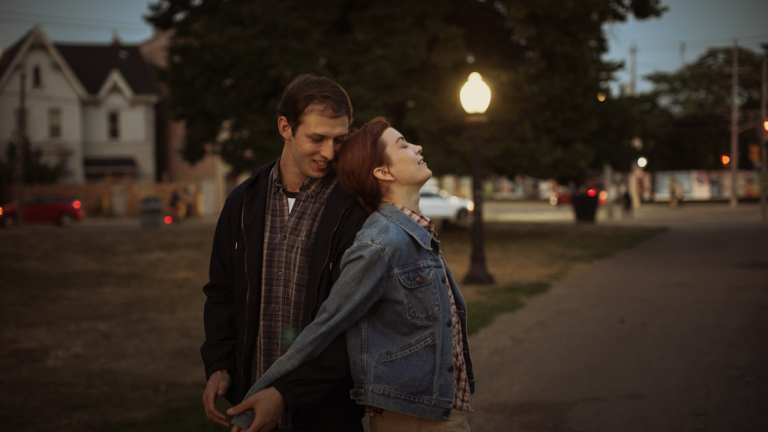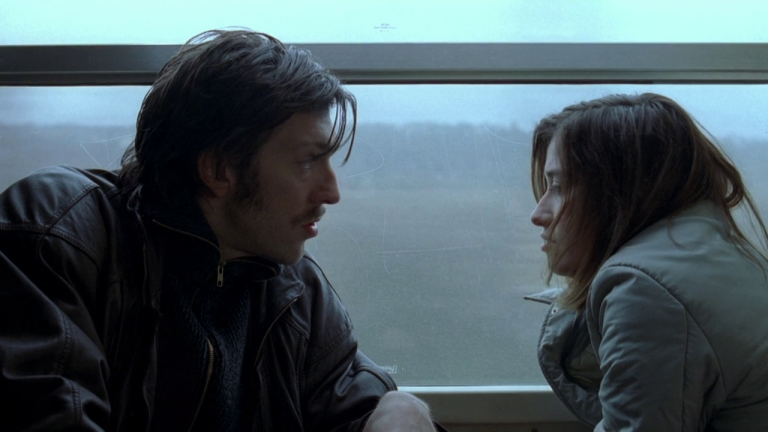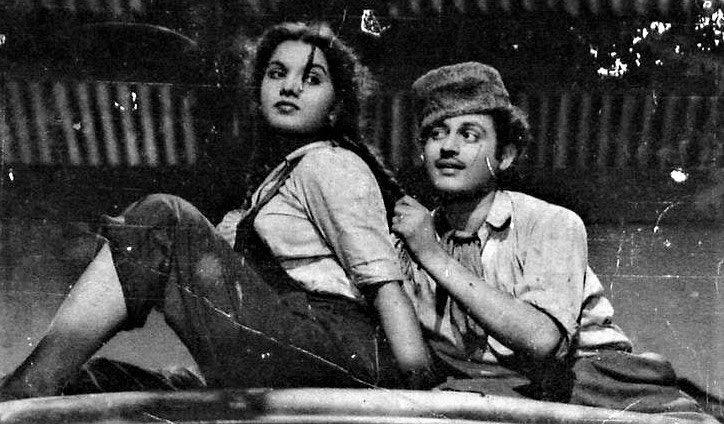Sine Ni Lav Diaz! These words have become synonymous with an understanding of cinema that crosses the boundaries of an interception of reality, morality, jurisprudence, and the condition of a country in decay. Encompassing a time limit of 4 hours and 10 minutes, Norte, the End of History (2013) is a harrowing reminder of what “decay” is. Each character has been placed against the Eliza and Joaquin family, and each character falls invariably short of the goodness that is embossed on this family of no means. Lav Diaz’s understanding of Dostoyevsky’s Crime and Punishment and Notes From the Underground forms the basis of the construction of Norte. The nation Philippines attains the character of this unseen, overarching villain. Its harsh landscape births the contradictions that are represented by the characters of Fabian, Joaquin, and Eliza.
Considered one of the greats of the “slow cinema” movement, Lav Diaz has transcended borders through his images of cultural and political apathy. His works are primarily universalist in his understanding of the human condition; his imagery is contemplative in nature. The long takes are nothing short of ingenuity in capturing the daily essence of duality experienced in the corrupt world. As espoused by Jonathan Romney in his article for Sight and Sound’s tribute to the first decade of 21st Century Cinema, he conferred that it is a minimalist form of cinema. There was a certain rarefied intensity when talking about the artistic gaze.
He also believed slow cinema downplays events or the concepts of causality in favor of mood, evocativeness, and an intensified sense of temporality. As described by Romney and James Quandt, slow cinema can be quantified under various terminologies. Slow, meditative, oblique, anguish, reticence, and dramatization are some adjectives that quantify slow cinema. Norte traipses the social tapestry of the hopelessness that engulfs and, at the same time, divides society in the name of class hierarchy.
Norte, The Story of Societal Decay
Fabian is a pseudo-educated law student who didn’t finish his education because his political inclinations are that of discourses at coffee houses and the countryside. He speaks of the moral duality that exists in human beings while characterizing the same himself. For all his convictions of how human beings are just carriers of morality delineated by the state, Fabian does sleep with his friend’s girlfriend. He borrows money from his friends and a local moneylender, Magda, to keep up appearances. His friends are overawed by his intelligence and his understanding of political philosophy. Every time he meets his friends, they ask him to finish his law school degree, and he doesn’t comment on it or makes some excuse to leave.
Things come to a standstill when he sees Magda disrespecting a woman in need and pushing her away. In a fit of rage, he goes to her house on the pretext of paying her back and kills her and her daughter. Instead of him getting caught, Joaquin gets caught because he was seen earlier by other people being in a physical altercation with Magda. Guilt-ridden, Fabian leaves the place and tries to carry on with his life, but his conscience doesn’t let him. On the other hand, Joaquin’s wife, Eliza, finds it difficult to make ends meet but keeps surviving.
Joaquin becomes a model prisoner and helps anyone in pain. When Wak-Wak, a formidable prison gang leader who keeps hurting anyone who looks him in the eye, falls ill, Joaquin nurses him back to health, even though Wak-Wak tries to cut Joaquin’s hand. A strange occurrence also keeps happening where Joaquin is able to drift in his sleep and travel far and wide to make sure that he knows that his wife and kids are alright. Meanwhile, Fabian guilt trips himself to go to a church group meeting, yet he can’t clear his conscience.
He leaves Manila and returns to his house to sell off the things he had stolen the night he killed Magda. He gives that money to Eliza and then brings the case of Joaquin to his lawyer friends and asks them to make sure Joaquin goes free because he is not guilty. Free of guilt, he decides to go to his sister’s house, who is devoutly religious. His guilt overpowers him, and he sexually assaults his own sister and then kills his childhood dog in a fit of anger. On the other hand, Eliza goes to meet Joaquin after four long years, and while coming back, she passes away in an accident.
Truth and Morality
Norte’s ingenuity lies in its source material and the ability of Lav Diaz to explore the psychological depths of human beings. The binary of good and evil is established throughout the entire length of the film. One family cannot do anything but good, and one man cannot do anything but evil. From the film’s beginning, Fabian’s character is considered an intellectual. Images of coffee house discourses are juxtaposed with Joaquin trying to walk after his accident.
This montage also signifies the condition of Filipino society and how pessimistic privileged individuals bog it down against that of the commoner who just wants to feed his family. This reductive explanation does not hold in itself the fact that the Philippines is not a beacon of truth and prosperity. The critique by Fabian and friends regarding the country’s law and order situation, from a socio-political perspective, is Diaz’s contention as well. As narrativized in Norte, the critique by Diaz seems rudimentary at best.
As a character, Fabian represents the entire diseased society, and Diaz curates this character on the same lines. The killing of Magda is a reactionary and diseased move. Magda represents the worst of humanity. In a society so riddled with capitalism’s nonchalant charge on the psyche of the human mind, Magda serves as a reminder to all how capitalism thrives through crisis. Fabian’s action is the corruption of a young, idle mind, trying to right the wrongs in a society where the concept of right and wrong doesn’t exist.
Fabian faces a moral dilemma and is slowly thrust into the wilderness of his mind and society. Even though he could have a beer and shout out to the world, “Fuck jurisprudence,” he is caught in this never-ending battle of the self, conscience, and the moral code the Philippines works with. The desire is maintained to achieve the dream of ridding the Philippines of autocratic rule. Magda carries the burden of autocracy and is represented as an extension of an authoritarian state. This desire turns into the ideal when he ends up killing Magda, but as the objective is achieved, there is a loss of desire. As Slavoj Zizek states, the ultimate melancholic experience is the loss of desire itself after attaining fulfillment.
Fabian desires to continue the political discourses in coffee houses and talk about anarchism. But his fulfillment of a pseudo-anarchic action to kill Magda and her daughter nullified his desire, and he is more unhappy by that loss of desire. A dialectical opposition also works throughout his mind when Fabian moves into the apartment in Manila. The camera is positioned outside as if filming a prisoner while he looks out through the bars of his window. This so-called creation of the mental prison and buying of the curtains to not let any sunlight enter and closing himself off from the world is also his form of catharsis for some sort of perverted justice.
In Crito, a dialogue by Plato, Socrates makes a compelling argument about why he must fulfill his prison sentence and accept the death penalty. This early observation of the social contract theory can also be utilized in this observation of Fabian’s character. In simple words, Socrates’ life is governed by the laws of the state because this is the state that allowed his parents to cohabit, which ultimately resulted in his creation. Since he had a choice to leave and not abide by the rules of the state, and he didn’t do so when he had the option, he has to accept the punishment meted out to him because it’s his moral obligation to do so.
In the case of Fabian, his apathy towards the law and governance of the country is palpable, and he is disgusted by the country’s descent into hell. But he himself, a responsible member of society, breaks the law and creates this moral dilemma of whether his action is right or wrong. The subjective morality of the situation creates this emotion of guilt. Is he a good person for killing Magda? If no one gets accused and Magda is dead, then the entire debt of the neighborhood is wiped off. In this situation, though, an innocent person is caught for the crimes he committed in the name of good intentions. Then comes the whole act of eliminating a form of intelligent life from society without giving that person a just chance to explain their behavior. There is a perversion and decay in Fabian, which is a direct representation of Filipino society.
For a moment, when he gives the money to Eliza and then successfully prompts his friends to take up the case of Joaquin, he feels like he has done enough to escape this guilt. That perverted enjoyment of guilt goes missing from his life, prompting him to commit further acts of transgressions. In a sequence, when he goes to the church group to confess, he never confesses to the crime. He cries about having this emotion of guilt and how he did not want to do what he did. This decay inside him is also an overarching feature of a society taken over by capitalistic greed. The squalor is vital to make sure the affluence stands out. The thesis of decay is needed to create an antithesis of ascent.
The Ascent of Hope

This is where the creation of the character of Joaquin and his wife, Eliza, pulls through. They are the perfect antithesis to Fabian and, by extension, to the Philippines as well. They are driven by the desire to make sure that nothing happens to their kids. In a sequence, Eliza explains to an old lady that they had many chances to leave the state and earn more money to ensure their kids have a comfortable upbringing. There was a conscious decision not to do it because their kids would’ve grown up without a mother and a father. The antithesis to this is created in a separate sequence where Fabian and his sister are discussing, and she asks him to stay and become a family again. Fabian proclaims they never were a family because their parents were never home.
One was in the USA, and the other was in Europe. The maids practically raised them. These two scenes depict the perfect decay of society as to how family, being the first unit of society, is a significant factor in how the children grow up, thereby also providing a glimpse into the Philippines as well. The desire to leave for a better upbringing is the problem. The question is posed directly to the misgovernance: why should people leave to create a life of comfortability?
Joaquin’s behavior inside the jail is that of a saint. Since he cannot care for his kids and wife, he does everything he can for his fellow inmates, even though some are beyond help. In a beautiful sequence, Wak-Wak questions the motivation of Joaquin as to why he behaves so well with everyone. Wak-Wak questions his reason for being good. When Wak-Wak falls ill, Joaquin nurses him back to health and constantly talks about how his wife loved the massages that he was doing for Wak-Wak now, and Wak-Wak finally apologizes. Joaquin is elevated to the position of the Lord himself. Diaz creates the perfect vessel for this elevation.
Joaquin’s selflessness is also a reminder that for commoners to survive in this society, they must be as selfless as possible and sacrifice as much as possible. The sufferings of Jesus Christ are required for eternal salvation. In one of the ending sequences, Joaquin is sleeping and literally elevated off the ground. His elevation also shows that he has suffered enough and has been able to keep his soul intact. This scene comes directly after the death of his wife Eliza and Fabian raping his sister and then brutally killing his dog.
Diaz portrays Joaquin as that perfect image in this decay and how he will be the one to lead the people to absolution. He has the power to change people. The Fabians of this world will always alienate themselves from society and talk about reactionary measures to bring change. Even Raskolnikov did not achieve absolution and was able to free himself from the guilt of his crime until he went through suffering. Fabian keeps committing heinous crimes, but he never suffers. His crimes are directly responsible for the erasure of a family.
Diaz’s last image of the kids walking with their aunt is also an image of how their lives will continue even though they face the utmost hardships created by a delinquent society. Even though there is decay, Diaz’s message is clear. Pessimism is never an option, even if life is hard. Pessimism can be afforded by the privileged but not by the downtrodden. Diaz’s desire may never be realized, which might be the reason for his continued perseverance to achieve this elusive dream. Like his characters, Diaz is looking for a resolution with nothing in sight. He plays with hope in the entire film, but there is a supposed hopelessness in the creation of Fabian.
The hopelessness stems from the alienation of the intellectual. It stems from the lack of justice and his inability to finish his degree. There is a form of resignation emanating within Fabian every time anyone asks him to finish the law degree. It’s also an aspect of the pessimism obtained from his supposed residue of impure thoughts. Right at the beginning, when a woman is lying on the side of the road, twitching from a stab wound, Fabian’s friends run towards her to help, but he just looks down at her with disdain and leaves. This hopelessness and intellectual apathy, combined with the continued perseverance of hope through Joaquin and Eliza, respectively, shape this film into the form of an epic, just like its source material.







